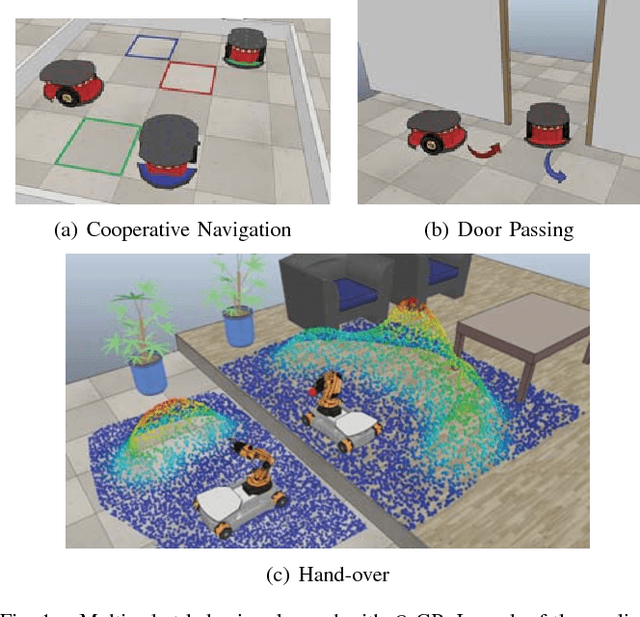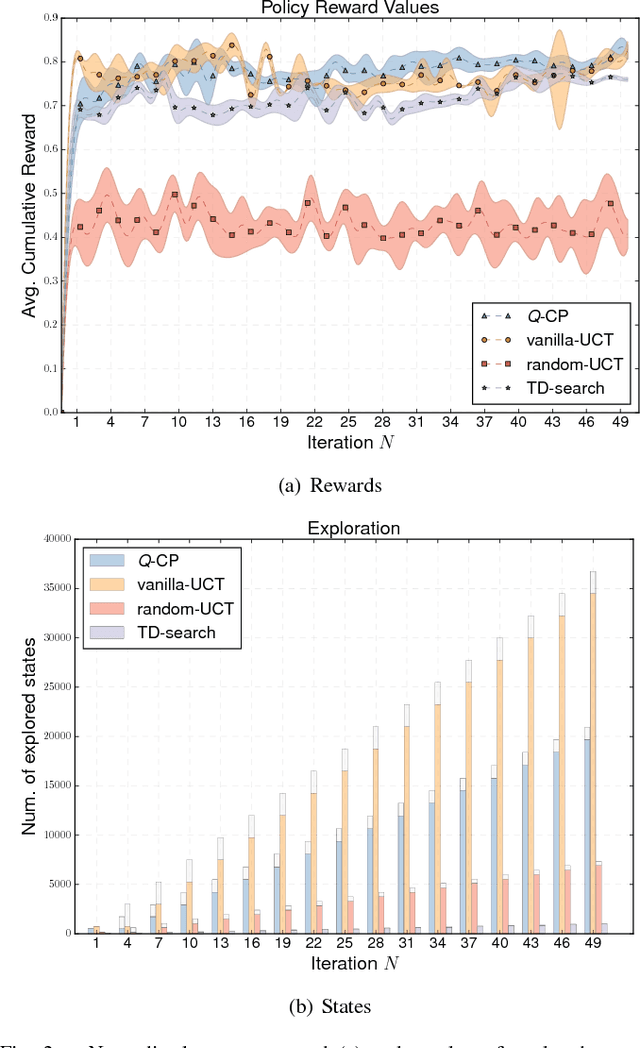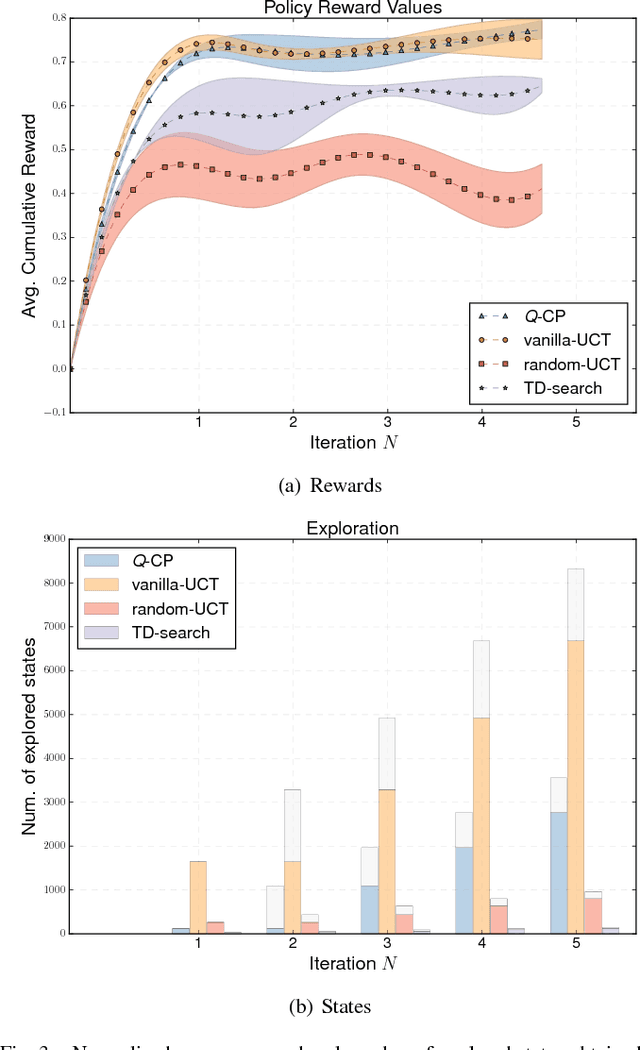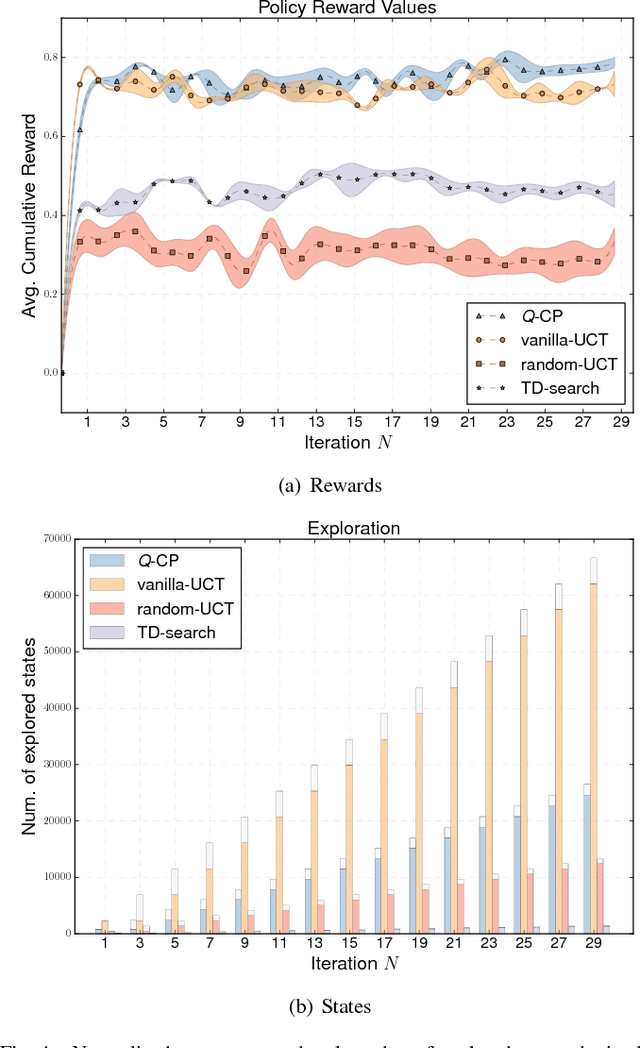Q-CP: Learning Action Values for Cooperative Planning
Paper and Code
Mar 01, 2018



Research on multi-robot systems has demonstrated promising results in manifold applications and domains. Still, efficiently learning an effective robot behaviors is very difficult, due to unstructured scenarios, high uncertainties, and large state dimensionality (e.g. hyper-redundant and groups of robot). To alleviate this problem, we present Q-CP a cooperative model-based reinforcement learning algorithm, which exploits action values to both (1) guide the exploration of the state space and (2) generate effective policies. Specifically, we exploit Q-learning to attack the curse-of-dimensionality in the iterations of a Monte-Carlo Tree Search. We implement and evaluate Q-CP on different stochastic cooperative (general-sum) games: (1) a simple cooperative navigation problem among 3 robots, (2) a cooperation scenario between a pair of KUKA YouBots performing hand-overs, and (3) a coordination task between two mobile robots entering a door. The obtained results show the effectiveness of Q-CP in the chosen applications, where action values drive the exploration and reduce the computational demand of the planning process while achieving good performance.
 Add to Chrome
Add to Chrome Add to Firefox
Add to Firefox Add to Edge
Add to Edge